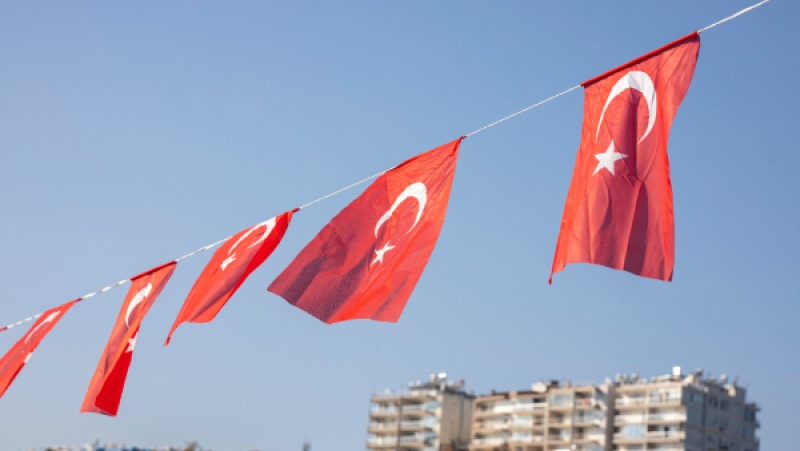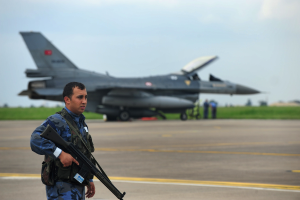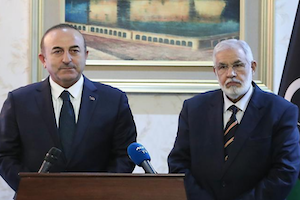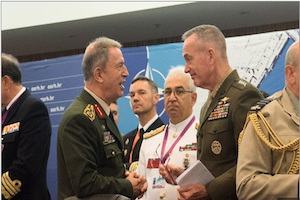Turkey's Rise as an Inter-regional Power Requires Rapprochement with Egypt
By Michaël Tanchum
May 29, 2021
On May 5 and 6, 2021, Turkey's deputy foreign minister visited Cairo, heading a delegation of Turkish officials to engage in exploratory rapprochement talks with their Egyptian counterparts. The first visit to Egypt by senior Turkish government officials since 2013, the landmark discussions were the culmination of Ankara's spring 2021 diplomatic outreach to Egypt. Beyond the goals of ameliorating Turkey's isolation in the Eastern Mediterranean and its exclusion from the multinational effort to develop the region's offshore energy reserves, Ankara's outreach to Egypt reflects a larger recalibration of Turkey's grand strategy. Ankara has come to understand that to realize its vision of transforming Turkey into an inter-regional power with commercial reach across the Middle East and greater East Africa region, Turkey must end its eight-year strategic antagonism to Cairo. By addressing Egypt's concerns about Turkey's support for the Muslim Brotherhood in particular, Ankara may find a geopolitical modus vivendi with Cairo that would facilitate Turkey's aspiration to play a leading role in the emerging commercial architecture linking the Eastern Mediterranean, the Arabian Peninsula, and the wider East Africa region.

Turkey Advances in Africa against Franco-Emirati-Egyptian Entente
By Michaël Tanchum
August 25, 2020
Turkey's expanded military presence in Libya has tilted the geopolitical game-board more in Ankara's favor vis-à-vis France and Egypt and their partner the United Arab Emirates. While motivating the strong backing Paris and Cairo are providing to Greece as it confronts Turkey in the eastern Mediterranean, Ankara's effort to extend Turkey's influence throughout Africa is driving a wider strategic competition between Turkey and France in the Sahel and likewise between Turkey and Egypt in the Horn of Africa. Ankara's advances in Niger in the Sahel and in Ethiopia in the Horn have raised the stakes for Turkey's rivals, pushing them into closer alignment, with the rivalry between Turkey and the Franco-Emirati-Egyptian entente defining one of Africa's main geopolitical fault lines.

Turkey Enters Libyan Escalation Spiral at Great Risk
By Micha’el Tanchum
December 30, 2019
Turkey upended the Eastern Mediterranean's strategic equation with its late November 2019 signing of maritime boundary and military cooperation agreements with the Tripoli-based Government of National Accord in war-divided Libya. By defining maritime borders with the internationally recognized administration in Tripoli, Ankara ostensibly has broken its regional isolation and gained greater legal standing to challenge the boundaries Greece established with Cyprus and Egypt upon which the current arrangements for Eastern Mediterranean natural gas development depend. While previously compartmentalized, Turkey's formalization of its commitment to Tripoli has interlinked an already tense maritime stand-off in the Eastern Mediterranean to a new escalation spiral in the Libyan Civil War in which Turkey's rivals possess escalation dominance over Turkey.

A Dangerous Policy of Turkish Containment in the Eastern Mediterranean
By Micha’el Tanchum
July 3, 2019
Turkey's provocative action of sending two drillships into Cypriot waters to explore for natural gas is a response to a grander provocation coming from the Republic of Cyprus, Greece, Egypt, and Israel to exclude Turkey from the marketing of Eastern Mediterranean gas. This common front, composed of interlinked security partnerships among the region's current natural gas producers and Greece, has been increasingly supported by the United States, France, and Italy, each of whom has significant economic investments in Eastern Mediterranean gas. For Ankara, its NATO allies' support of this common front is tantamount to a policy of soft containment against Turkey. The hardening of this containment through substantial naval support to the Republic of Cyprus as a response to Turkey's actions could send the Eastern Mediterranean into a dangerous escalation spiral that could permanently alter Turkey's relationship with NATO.

Turkey Rattled by Weak Hand in Libya as Russia and Egypt Advance
By Micha’el Tanchum
November 27, 2018
On November 13, 2018, Turkish Vice President Fuat Oktay stormed out of an international conference on Libya organized in Palermo, Italy, complaining about “attempts to keep Turkey out of the process” to resolve the chaos in the divided North African nation. Later, the Turkish Vice President vowed that "Turkey will continue to display its righteous and firm stance with determination in Cyprus, Syria and Libya." Oktay's actions and remarks in fact reflect Turkey's weak hand in Libya. A future Turkish show of force in Libya cannot be ruled out, but ultimately the change in the balance of power in North Africa toward Russia and Egypt has inevitably undermined Turkey's already challenging strategic position in the Eastern Mediterranean.



